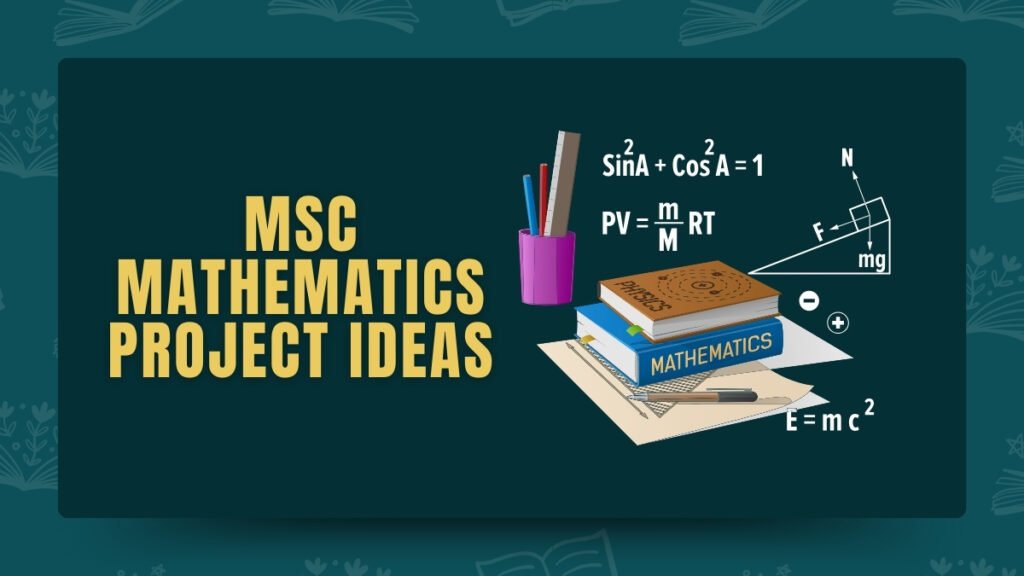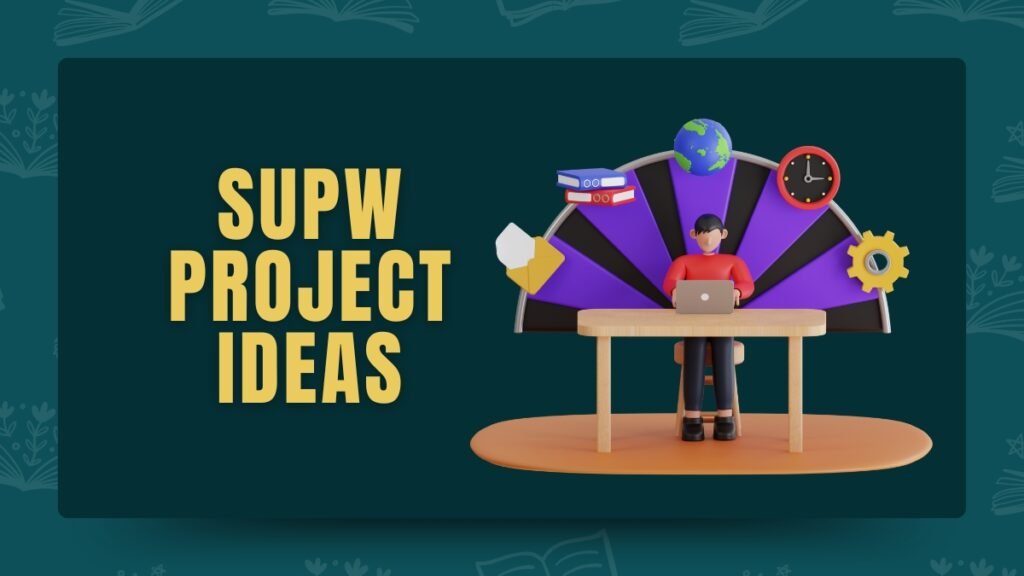Discover easy science fair project ideas for 3rd graders! Simple, fun ideas that make learning exciting and inspire curiosity.
Did you know that participating in science fairs can significantly enhance a child’s learning experience? According to studies, students who engage in hands-on science projects develop critical thinking skills and a deeper understanding of scientific concepts.
So, why not dive into the fascinating world of science with some exciting project ideas? Whether you’re looking to explore the natural world, conduct fun experiments, or showcase your creativity, there’s a perfect project waiting for you.
Science fairs are not just about winning; they are opportunities to ask questions, explore new ideas, and learn through discovery. In this article, we will explore various engaging and age-appropriate science fair project ideas for 3rd graders.
We’ll cover everything from nature-inspired projects to fun experiments that spark curiosity. Let’s embark on this exciting scientific journey together and uncover the joys of discovery!
Science Fair Project Ideas for 3rd Graders PDF
Why Science Projects Matter for 3rd Grade Learning?
Science projects play a crucial role in the education of 3rd graders. Here are some reasons why:
- Hands-On Learning: Engaging with real materials and experiments helps solidify concepts learned in the classroom.
- Critical Thinking: Projects require students to ask questions, make predictions, and analyze results, fostering critical thinking skills.
- Teamwork: Many projects encourage collaboration, teaching students how to work effectively with others.
- Creativity: Science projects allow students to express their creativity, from designing experiments to presenting their findings.
- Real-World Applications: Projects can relate to everyday life, helping students understand the relevance of science.
- Confidence Building: Completing a project and presenting it builds self-esteem and public speaking skills.
- Curiosity and Exploration: Science projects nurture a sense of wonder and the desire to explore the world around them.
By engaging in science projects, students not only learn scientific concepts but also develop essential life skills.
Science Fair Project Ideas for 3rd Graders
Here’s a list of over 170 science fair project ideas suitable for 3rd graders, covering various topics like biology, chemistry, physics, and earth science:
Biology Projects
- Sunlight and Plants: Test if plants grow better with more sunlight.
- Apple Browning: See if lemon juice stops apple slices from turning brown.
- Tap vs. Distilled Water: Grow plants with different water types.
- Ant Watching: Record where ants go.
- Mold Growth: Check how fast bread grows mold.
- Butterfly Stages: Draw the stages of a butterfly’s life.
- Animal Homes: Find out where different animals live.
- Worm Composting: Watch worms make compost.
- Skeleton Model: Build a human skeleton model.
- Taste Test: See how flavors change taste.
Chemistry Projects
- Baking Soda Volcano: Make a volcano with baking soda and vinegar.
- Crystal Growing: Grow sugar or salt crystals.
- pH Testing: Test if liquids are acidic or basic.
- Invisible Ink: Write with lemon juice and reveal it with heat.
- Oobleck: Make a mix that’s solid and liquid.
- Rocket: Make a baking soda and vinegar rocket.
- Bubble Sizes: Test which soap makes the biggest bubbles.
- Milk Swirls: Make colors move in milk with soap.
- Rust: See what rusts faster.
- Slime Making: Try different slime recipes.
Physics Projects
- Paper Airplanes: Test which paper airplane flies best.
- Simple Lever: Make a lever and see how it works.
- Gravity Drop: Drop objects to see which falls first.
- Balloon Rocket: Launch a balloon on a string.
- Magnet Strength: Test magnet power with paperclips.
- Pendulum: Make a pendulum and test swing speeds.
- Shadow Sizes: See how shadows change with sunlight.
- Sound in Water: Check if sound moves through water.
- Solar Cooking: Make a sun-powered oven for s’mores.
- Hovercraft: Make a balloon hovercraft and test surfaces.
Earth Science Projects
- Water Cycle Jar: Make a water cycle in a jar.
- Rock Collection: Find and label different rocks.
- Weather Journal: Record daily weather.
- Earthquake Model: Show how earthquakes work.
- Solar System Model: Make a small solar system.
- Fossil Making: Create model fossils.
- Volcano Model: Build a small erupting volcano.
- Air Samples: Compare air from different places.
- Compost Bin: Make a compost bin with scraps.
- Soil Layers: Show soil layers with different materials.
Environmental Projects
- Recycling Poster: Make a poster about recycling.
- Water Needs: See how much water plants need.
- Energy Check: Find which home items use more energy.
- Bird Feeder: Build a feeder and watch birds.
- Pollution on Plants: Test how pollution affects plants.
- Earth Day Cleanup: Plan a cleanup day.
- Nature Hunt: Spot plants and animals around you.
- Solar Power: Learn how solar panels work.
- Wind Power: Build a small windmill.
- Plastic and Sea Life: Learn how plastic affects the ocean.
Engineering Projects
- Bridge Building: Build bridges and test strength.
- Catapult: Make a catapult and see how far it throws.
- Marble Run: Build a marble track.
- LEGO Towers: Build strong towers with LEGOs.
- Rube Goldberg Machine: Make a machine for a simple task.
- Windmill: Make a windmill that spins.
- Shape Stability: Test which shapes are most stable.
- Balloon Bridge: Build a bridge from balloons.
- Rocket Launcher: Launch a homemade rocket.
- Floating Materials: Test which items float best.
Health and Nutrition Projects
- Healthy Foods: Make a chart with healthy foods.
- Flavor Test: See how people react to different tastes.
- Exercise Heart Rate: Measure heart rate after exercise.
- Germ Spread: Use glitter to show how germs spread.
- Fruit Nutrients: Learn about nutrients in fruits.
- Sugar in Snacks: Compare sugar in snacks.
- Exercise and Mood: See how exercise affects mood.
- Sleep Importance: Research why sleep matters.
- Stress Busters: Test ways to relax.
- Temperature Check: See how exercise changes body temp.
Fun and Creative Projects
- Lava Lamp: Make a lava lamp with oil and water.
- Milk Colors: Swirl colors in milk with soap.
- Crystal Ball: Grow crystals on a string.
- DIY Volcano: Mix baking soda and vinegar to make “lava.”
- Color Mixing: Mix colors with paints.
- Magnet Fun: Test magnets attracting or repelling.
- Scented Candles: Make scented candles.
- Sound in Water: See if sound moves through water.
- Balloon Power: Test balloon pressure.
- Color Flowers: Change flower colors with food coloring.
Technology and Electronics Projects
- Simple Circuit: Make a circuit with a battery and light.
- DIY Flashlight: Build a flashlight.
- Solar Fan: Make a fan with solar power.
- Coding Basics: Try simple coding.
- Alarm: Build a small alarm with a buzzer.
- LED Circuit: Make a simple LED light circuit.
- Basic Robot: Build a basic robot.
- App Test: Try a learning app and review it.
- Digital Frame: Make a digital picture frame.
- Quiz Game: Design a simple quiz game.
Miscellaneous Projects
- Culture Research: Learn about a culture’s science.
- Famous Scientists: Make a poster on a scientist.
- Science in Sports: Discover science in a sport.
- Time Capsule: Make a time capsule with today’s items.
- Science Jobs: Talk to someone in a science job.
- Recycled Art: Make art with recycled items.
- Space Study: Study a planet or moon.
- Myth Busters: Test if common beliefs are true.
- Science Art: Draw science-related art.
- Health Diary: Track your daily health habits.
Final Ideas
- Science Word Search: Make a science word search.
- Comic Strip: Draw a science comic.
- Family Science Night: Plan a family science night.
- Science Quiz: Make a quiz for friends.
- Experiment Kit: Put together a kit for easy experiments.
- Nature Journal: Write down what you see outside.
- Experiment Guide: Make a guide for easy experiments.
- Science Story: Write a short science story.
- Nature Collage: Make a collage with nature items.
- Scientific Method Poster: Show the steps of the scientific method.
Fun and Easy Science Experiments for 3rd Graders
Here’s a list of engaging experiments that 3rd graders can easily perform:
Homemade Volcano
Objective: Demonstrate a chemical reaction.
Materials
- Baking soda
- Vinegar
- Food coloring
- Plastic bottle
- Tray
Instructions
- Place the bottle on the tray.
- Add baking soda and food coloring into the bottle.
- Pour vinegar into the bottle and watch the eruption!
Plant Growth Experiment
Objective: Observe the effects of light on plant growth.
Materials
- Seeds (e.g., beans)
- Pots
- Soil
- Water
- Light source
Instructions
- Plant seeds in two pots.
- Place one pot in a sunny spot and the other in a dark area.
- Water both equally and observe growth over a few weeks.
Static Electricity Experiment
Objective: Explore static electricity.
Materials
- Balloon
- Wool cloth
- Small paper pieces
Instructions
- Inflate the balloon and rub it with the wool cloth.
- Hold the balloon near small paper pieces and watch them jump!
Invisible Ink
Objective: Learn about chemical reactions.
Materials
- Lemon juice
- Cotton swabs
- White paper
- Heat source (light bulb)
Instructions
- Dip the cotton swab in lemon juice and write a message on the paper.
- Allow it to dry.
- Hold the paper near a heat source to reveal the message!
Oobleck Experiment
Objective: Investigate non-Newtonian fluids.
Materials
- Cornstarch
- Water
- Mixing bowl
Instructions
- Mix 2 cups of cornstarch with 1 cup of water.
- Play with the mixture to see its unique properties!
Floating Eggs
Objective: Understand density.
Materials
- Eggs
- Salt
- Water
- Clear container
Instructions
- Fill the container with water and add an egg to see it sink.
- Gradually add salt until the egg floats, demonstrating density.
DIY Weather Station
Objective: Learn about weather patterns.
Materials
- Plastic bottle
- Straw
- Balloon
- Water
Instructions
- Cut the bottom off a plastic bottle.
- Invert it and place it in another bottle filled with water, using a straw to create a barometer.
Nature-Inspired Science Fair Projects for Young Explorers
Connecting students with nature is vital for their development. Here are some nature-inspired project ideas:
Insect Observation
- Objective: Study local insect species and their behaviors.
- Instructions: Set up a bug hotel in your garden and observe the types of insects that visit. Document your findings!
Seed Dispersal Investigation
- Objective: Understand how plants spread their seeds.
- Instructions: Collect different seeds and observe how they are dispersed by wind, water, or animals.
Weather Patterns Study
- Objective: Track local weather changes.
- Instructions: Keep a weather journal for a week, noting temperature, rainfall, and wind direction. Create a visual representation of your findings.
Creative Physics Projects for 3rd Grade Students
Physics projects help students grasp essential concepts through fun activities. Here are some ideas:
Catapult Challenge
- Objective: Learn about force and motion.
- Instructions: Build a simple catapult using popsicle sticks and test how far different objects can be launched.
Balloon Rockets
- Objective: Explore thrust and movement.
- Instructions: Attach a balloon to a string and let it go to observe the principles of rocket propulsion.
Simple Machines Exploration
- Objective: Understand basic physics concepts.
- Instructions: Create a simple lever using a ruler and a pencil to lift objects, discussing the advantages of simple machines.
Engaging Chemistry Experiments for Budding Scientists
Chemistry projects can be exciting and safe for young learners. Here are some suggestions:
Color-Changing Milk
- Objective: Investigate chemical reactions.
- Materials: Milk, food coloring, dish soap.
- Instructions: Pour milk into a dish, add food coloring, and then drop in dish soap to see the colors swirl!
DIY Slime
- Objective: Explore properties of materials.
- Materials: Glue, borax, water.
- Instructions: Mix glue with a borax solution to create slime. Discuss its viscosity and how it changes.
Crystal Growth Experiment
- Objective: Observe crystallization.
- Materials: Sugar or salt, water.
- Instructions: Dissolve sugar in boiling water and let it sit to form crystals. Document their growth over time.
Earth Science Projects That Capture Imagination
Earth science projects allow students to explore geology, weather, and ecosystems. Here are some engaging ideas:
Rock Collection
- Objective: Identify different types of rocks.
- Instructions: Gather various rocks and classify them based on their characteristics.
Mini Water Cycle Model
- Objective: Demonstrate the water cycle.
- Instructions: Create a mini model using a jar, water, and a small piece of plastic wrap to show evaporation and condensation.
Weather Station
- Objective: Observe local weather conditions.
- Instructions: Build a simple weather station to measure temperature, wind speed, and rainfall. Record your observations over time.
7 Steps for How to Choose the Perfect Science Fair Project
Choosing the right project is essential for a successful science fair experience. Here are seven steps to help you select a project that fits your interests and abilities:
- Identify Interests: Think about what topics excite you the most.
- Research: Gather information on those topics to see what intrigues you.
- Formulate a Question: Decide on a specific question you want to answer.
- Consider Feasibility: Ensure you can access the materials needed for the project.
- Plan Your Experiment: Outline how you will conduct the experiment.
- Make Predictions: Write a hypothesis based on your understanding of the topic.
- Seek Feedback: Discuss your ideas with teachers, friends, or family for additional input.
12 Step-by-Step Guide to Completing a 3rd Grade Science Project
Completing a science project can seem daunting, but following these steps can simplify the process:
- Choose a Topic: Select something that genuinely interests you.
- Conduct Research: Look up information to understand your topic better.
- Formulate a Hypothesis: Make an educated guess about the outcome of your experiment.
- Gather Materials: Collect everything you need for your project.
- Design Your Experiment: Plan how you will conduct the experiment step by step.
- Conduct the Experiment: Follow your plan carefully and document your observations.
- Record Your Data: Keep track of results and any changes during the experiment.
- Analyze Your Results: Look for patterns or conclusions based on your data.
- Create a Presentation: Organize your findings in a clear and visually appealing way.
- Practice Your Presentation: Rehearse sharing your project with friends or family.
- Prepare for Questions: Think about what others might ask and prepare your answers.
- Present with Confidence: Share your project with enthusiasm and clarity!
9 Tips for Presenting Your Science Fair Project with Confidence
Presenting a project can be nerve-wracking, but these tips can help:
- Know Your Material: Be familiar with your project inside and out.
- Practice: Rehearse your presentation multiple times to build confidence.
- Use Visual Aids: Incorporate posters or models to illustrate your points.
- Engage the Audience: Ask questions to involve them in your presentation.
- Stay Calm: Take deep breaths if you feel nervous.
- Make Eye Contact: Connect with your audience while speaking.
- Be Enthusiastic: Show your passion for your project!
- Prepare for Questions: Think about possible questions your audience might have.
- Have Fun: Enjoy sharing your discoveries and knowledge!
Conclusion
Engaging in science projects nurtures a lifelong love for exploration and discovery in young learners. Through hands-on activities, 3rd graders can connect with scientific concepts and develop essential skills.
Encouraging curiosity and providing opportunities for creativity allows students to appreciate the wonders of science. As they dive into experiments and presentations, they build confidence and critical thinking abilities. Science is not just a subject; it’s a way to understand the world.
Adam Tesla is a creative thinker with 5 years of experience in providing unique and engaging project ideas across various categories and niches. His expertise lies in simplifying complex topics and presenting fresh, innovative concepts that inspire students, professionals, and entrepreneurs.


